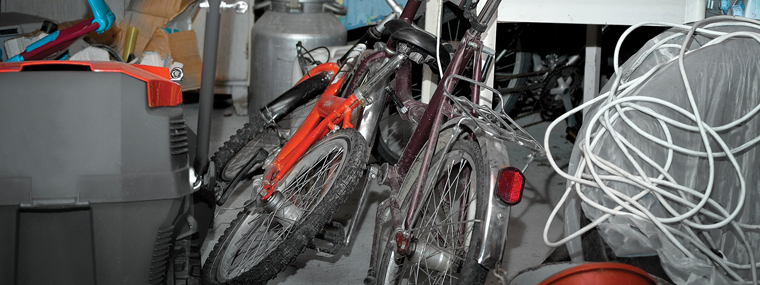
Tackling Hoarding in Community Associations
By Nicole R. Kurtz / Published June 2018

Hoarding is becoming an increasingly common problem throughout the nation, especially for community associations where people are forced to cohabitate at close proximities. For association board members and property managers, it presents a challenging issue that should be addressed with sensitivity and discretion.
Depending on its gravity, hoarding can pose health and life-safety threats to fellow residents, causing foul odors and pest-control issues that spill over into hallways and neighboring units, as well as potential fire hazards. Despite being a nuisance, it is important to remember that compulsive hoarding is a disorder, one which usually implies some sort of mental health issue.
Should Accessing the Unit be the First Step?
Most condominium associations have a provision in their governing documents that mirrors the Florida Statutes and allows association representatives to enter a unit for emergency reasons and to prevent damage from being caused to other units and the common elements. A typical example of this scenario coming into play would be when helping resolve a water leak that is causing flooding or seepage.
Though it would seem like these provisions would give an association the authority to enter a unit in order to investigate if hoarding is taking place, we discourage boards from entering a unit (without the owner’s consent) on this basis unless an actual and verifiable emergency exists. Entering units under false pretenses could expose an association to significant liability.
Instead, I strongly recommend that associations contact their managing agent and legal counsel to assist in discerning and implementing a plan to address the situation. This may begin with a violation notice letter advising the alleged “hoarder” of the concern regarding the possibility that damage to other units and the common elements could arise from such a condition and giving them a deadline to either confirm that such hoarding is not taking place or eliminate it.
What if a Notice Doesn’t Solve Things?
Should the resident ignore the violation notice letter, it is recommended that associations enlist the help of government agencies to handle the enforcement. Agencies such as the health, fire, and building departments, as well as city and/or county code enforcement, can step in and attempt to resolve the issue or, at the very least, inspect the unit and create a report that the association could then use if it is compelled to file a lawsuit against the hoarder.
The key for associations is to tread carefully when handling problems posed by hoarders—they are complex and oftentimes very difficult to solve. Bear in mind the old adage: One man’s trash is another man’s treasure.
Nicole R. Kurtz
Attorney at Siegfried, Rivera, Hyman, Lerner, De La Torre, Mars & Sobel
Nicole R. Kurtz is an attorney with the South Florida law firm Siegfried, Rivera, Hyman, Lerner, De La Torre, Mars & Sobel P.A. who focuses on community association law. The law firm represents more than 800 Florida associations, and it also maintains offices in Broward and Palm Beach counties. For more information, visit www.srhl-law.com, www.FloridaHOALawyerBlog.com or call (305) 442-3334.


